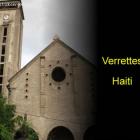ADVERTISEMENT
economy - Haiti Observer Blog
economy, Haiti Observer Blog. Read the following articles about economy
Food Subsidies or Agricultural Investment? Which is Best for Haiti's Economy?
Food aid has been delivered to Haiti for the past 60 years, in two decades 1.5 million tons. Seven million people out of a population of 10 million suffer from hunger, and 1.5 million suffer acute chronic malnutrition. Infrastructure weaknesses, waste, and "the perverse effects" concerning food aid drive the crisis.
The government of Haiti (GOH) and outside donors pay no attention to the agricultural sector, pertaining to its growth and sustainability. The industry accounts for one-quarter of gross domestic product (GDP), but that figure has dropped. For many decades, scant investment from GOH and outside donors has occurred. Conversely, food-aid funding outpaces agricultural funding by more than 50%.
Haiti's Informal Sector Needs More Micro-Lending Programs
President Martelly met with 54 business associations to seek solutions to informal sector challenges. The central need for small and mid-size enterprises (SMEs) is for credit at favorable interest rates.
Also present were ministers of Women's Affairs, Economy and Finance, and Crop Production, along with custom officials and Central Bank's CEO.
The Haiti informal sector is a non-aggregated group, and they account for 80% of the workforce. Underdeveloped SMEs have been ignored until the 2010 earthquake forced the issue of growing the economy.
The government of Haiti (GOH) has developed an agenda for SMEs, some of which includes:
Marie Carmelle Jean Marie, New Business Advisor Economic and Financial of the Presidency
Marie Carmelle Jean Marie has been assigned as the new Business Economic and Financial Advisor of the Presidency. According to well-informed source, Jean Marie was put into this post by and international community. The resignation of Jean Marie from the Lamothe administration goes on to show that Prime Minister Laurent Lamothe not President Martelly was the primary cause of resignation of the flamboyant Finance Minister.
After several discussions with President Joseph Michel Martelly and her wife Sophia Saint-Remy Martelly agreed to take up the post of Advisor to Financial and Economic affairs of Presidency. According to some well-informed sources, both President Martelly and First Lady Sophia had deep appreciations for the former Finance Minister Marie Carmelle Jean Marie, who is popular by the moniker Iron Lady.
World Bank to Draft New Mining Legislation for Haiti
To help Haiti rebuild its infrastructure, the World Bank (WB) is working with the government of Haiti (GOH) to draft a proposal to modernize its mining law. Haiti's mining industry is a well-kept secret. Foreign mining companies have been quietly doing exploratory drilling in northern ranges close to the Dominican Republic border, having invested $30-plus million dollars. What they have uncovered is a mother lode of copper, silver, and gold ore, estimated at $20 billion.
For Haiti to benefit from this potential windfall, royalty rates need to be raised from two percent per ounce to at least nine to 12 percent. It's going to be a tough sell for WB and GOH to persuade Parliament for two reasons. First, Parliament cannot hold sessions unless all 30 senators are present. Some senators are absent because they are campaigning for re-election, although elections have yet to be announced. Second, the opposition party, holding a majority of seats, is against cooperating with the current administration.
Haiti has a Vision, to become an emerging market by 2030
Marie Carmelle Jean Marie, Minister of Finance and Economy to Haiti, has seen the future and it involves, as always, reducing the country's need for aid from foreign lands and a modernization of the economy. What's new is that the goal is to change Haiti from a frontier market to an emerging market by 2030; the catch is to keep her ambitious application from becoming 'just a slogan!'
The plan, which involves attracting investments from companies in the US, Venezuela and the Dominican Republic, would boost public finances. Jean Marie expressed the concern that this could not happen unless Haiti proves to investors it can manage its resources well. This demand for transparency and effective management was put into glaring light when Canada stopped its aid at the beginning of the year due to deficiencies in accountability. In the minister's bid to replace aid with investment, the role of PPPs (Public private partnerships) will be essential to revitalize the agricultural sector, which has been devastated by natural disasters time and again.
Haitian Government, the Biggest Obstacles for Economic Growth
A country's economic growth is dependent on two factors namely, 'Entrepreneurship' and 'Government'. While the two are not really exclusive mutually, the two can lead to sustainable economic growth. Either the government must undertake the economic development or it must provide assistance to the private sector entrepreneurs to carry out certain developmental works in an environment that is targeted towards the welfare of the economy as a whole. When this happens, any economy shows rapid and sustained growth. For Haiti however, the situation was and is different.
The biggest obstacle for Haitian economic growth is the political system of the country. For years, the country was under military rule and dictatorship. However, after the end of dictatorship when the country selected the party led by Jean-Bertrand Aristide through its first free election, the people of Haiti felt a sense of relief that wasn't long lasting. The government turned out to be more like a dictator with government officials getting involved in trafficking of drug. The leaders of the government called themselves as the 'Anti-Liberals'.
As source Kaara decreases, Saut d'Eau may no longer exist
Saut-d'Eau falls in the Central Plateau of Haiti is at peril of running dry. Its mouth, Kaara, is not producing enough water to keep the waterfall of Saut-d'Eau at full volume, having declined in its output over the last six months.
Simon Desras, President of the Senate, worries if the falls should stop flowing, the economy of the Central Plateau will suffer. The stoppage would damage, not only the economy of the region, but affect a tradition that has taken place at the falls since 1847. In that year, an apparition of the Virgin Mary manifested at the twin falls, beginning an annual pilgrimage to Saut-d'Eau, to bathe beneath the onrushing streams that plunge down the gorge. Upwards of 20,000 bathers visit each year for this sacred rite.
Small and Mid-Size Business Potential to Stimulate Haitian Economy
Pan American Development Foundation (PADF) and Haitian Hometown Association Resource Group (HHTARG) are presenting a forum, "Investing in Haitian Progress", at a total of nine cities in America, Canada, the Dominican Republic, and New York City, its first stop. The United States Agency for International Development (USAID) is funding the project, offering small and medium enterprise (SME) businesses matching grants from $50,000 to $200,000 for innovative business plans. The goal is to support development of SMEs to increase employment in Haiti.
Speakers at the forum will talk about private investment in Haiti, potential stakeholders, finance, program administrators, and investment bodies like Inter-American Bank that partner with the government of Haiti to support SMEs.
Tourism is to the Caribbean as Oil is to the Middle East
Tourism in the Caribbean has been happening since before Haiti became a republic in 1804. In the beginning, the very rich traveled to the Caribbean to experience the benefits of its health resorts, some of which offered hot springs. Tourists chose which of the islands they favored according to the official language spoken: The English preferred Jamaica; the French, French Martinque; and the Dutch, Curaçao.
As the Caribbean grew to be a tourist destination in the 60s, international airlines began offering non-stop flights. This changed the character of the tourist profile, which had been only the wealthy, but now became middle-class as well. Once the hospitality and tourism industries saw the potential for big profits in the Caribbean, they began investing in the region.
Creole Pig, the bank account of the Haitian Peasant
There are many things that can be said that play on the Haitian peasant and the Creole pig, but there is true tragedy behind every punch line. In one of the government's single most devastating moves, done in the 1980's to placate the American's fear of a swine flu outbreak in the Dominican Republic contaminating their Pork industry, a nationwide slaughter of Creole pigs, noted to translate to 30% of the income of peasants, was undertaken.
Another serious misstep was the government's method of damage control. Seeing the devastation wrought on the livelihood of the peasant farmer, they attempted to replace what had been taken with American pigs from Iowa farmers. This too proved a failure, as the new breeds could not adapt to the inevitably harsher methods of farming, including but not limited to table scraps for food and no formal shelter.
Our objective is to share with you news and information about Haiti and the people of Haiti. Traditions, habits and the way we were or grew are alive in this site. We highly recommend that you Subscribe to our Newsletter and also share with us some of the things that are memorable and made us unique people.

 Haitians are a Proud People
Haitians are a Proud People  Saint Marc, Haiti
Saint Marc, Haiti  Battle of Vertieres
Battle of Vertieres  Black Friday Shopping Season
Black Friday Shopping Season  Verrettes, Haiti
Verrettes, Haiti